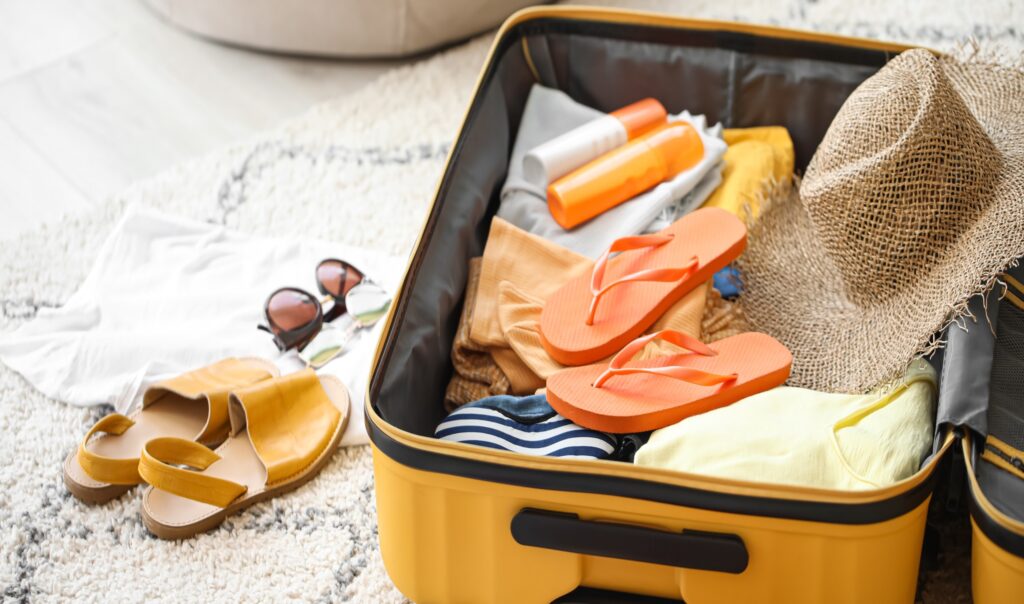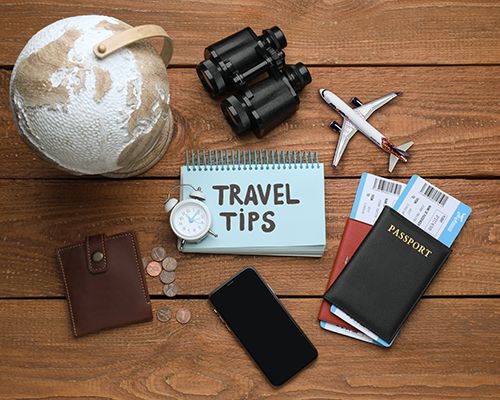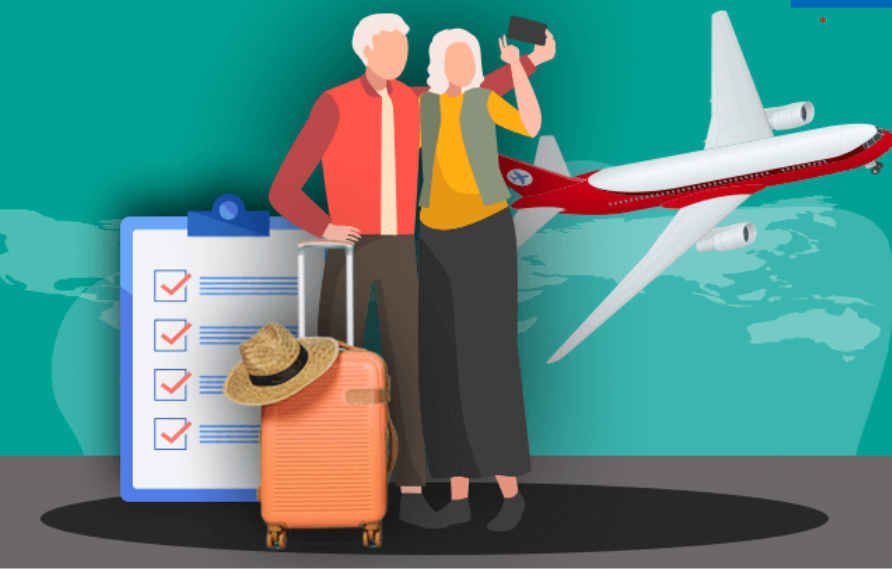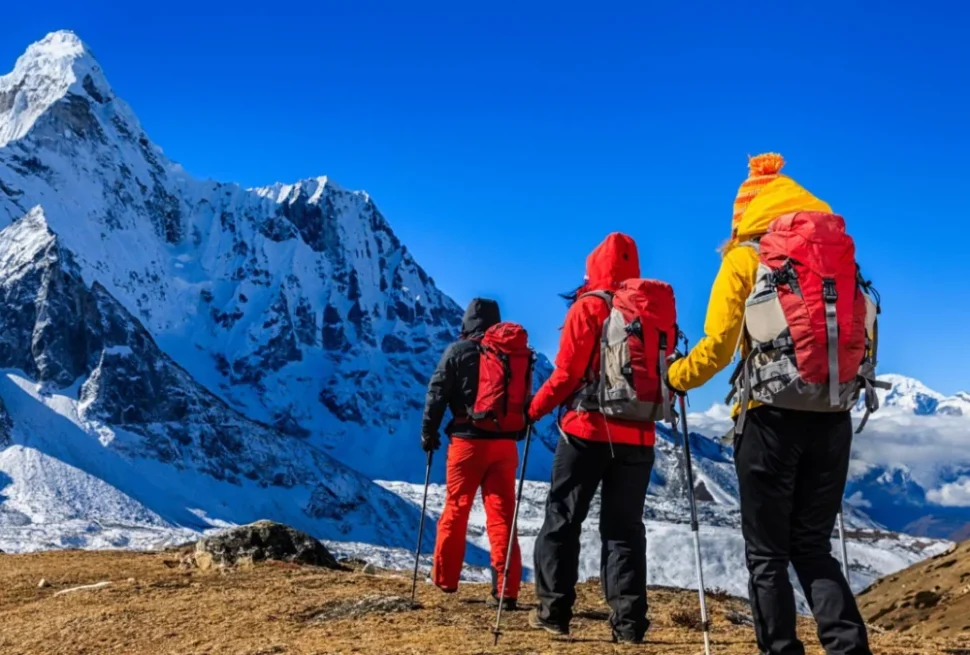
Introduction
Traveling can be an exciting and enriching experience, but it also requires careful planning and preparation to ensure a smooth journey. Whether you’re embarking on a weekend getaway or a long-haul adventure, these travel tips will help you make the most of your trip.
Planning Your Trip
Choosing the Right Destination
Choosing the ideal destination for your travels entails a thoughtful assessment of your interests, budget, time constraints, and practical considerations like weather and safety. Whether you’re drawn to vibrant cities, tranquil beaches, or breathtaking landscapes, understanding what you seek from your journey will guide you towards the perfect fit. Additionally, considering cultural immersion opportunities, language barriers, and healthcare accessibility ensures a well-rounded and fulfilling experience. Trusting your instincts and embracing unexpected discoveries can also lead to unforgettable adventures. Ultimately, the key lies in balancing your desires with logistical realities to create a travel experience that resonates with you on a personal level.
Setting a Budget
Setting a budget for any endeavor, including travel, is a crucial step in ensuring financial stability and responsible decision-making. Begin by assessing your financial situation, taking into account your income, savings, and any outstanding expenses or debts. Next, determine the total amount you can comfortably allocate to your travel expenses without compromising your financial well-being. Consider all potential costs, including transportation, accommodation, meals, activities, and unexpected expenses. Researching the typical costs associated with your chosen destination can provide valuable insights into how much you’ll need to budget. Be realistic and conservative in your estimations, accounting for fluctuations in currency exchange rates and unexpected expenses. It’s also wise to leave room in your budget for emergencies or unforeseen circumstances. Once you’ve established your budget, track your expenses closely during your trip to ensure you stay within your limits.
Researching Your Destination
Researching your destination thoroughly before embarking on your journey is paramount to ensuring a smooth and fulfilling travel experience. Begin by delving into the history, culture, and local customs of the place you plan to visit, gaining insight into its traditions and values. Familiarize yourself with the geography, climate, and top attractions, allowing you to plan your itinerary accordingly and make the most of your time. Explore accommodation options, dining venues, and transportation networks to ensure comfort and convenience throughout your stay. Furthermore, delve into safety precautions, vaccination requirements, and visa regulations to preempt any potential challenges or setbacks. Engaging with travel blogs, forums, and guidebooks can provide invaluable firsthand insights and recommendations from fellow travelers. By arming yourself with knowledge and understanding, you’ll not only navigate your destination with confidence but also forge deeper connections with its people and culture, enriching your travel experience immeasurably.
Packing Tips

Making a Packing List
Creating a comprehensive packaging list is essential for ensuring a smooth and organized travel experience. Start by considering the duration and purpose of your trip, whether it’s a weekend getaway or an extended adventure abroad. Then, make a thorough inventory of essential items such as clothing, toiletries, medications, and travel documents. Remember to pack according to the climate and activities you’ll be engaging in, including appropriate attire and gear. Don’t forget electronics and their chargers, as well as any necessary adapters for international travel. Additionally, include personal items like a journal, snacks, and entertainment for the journey. It’s also wise to pack a small first aid kit with bandages, pain relievers, and other medical necessities. Lastly, double-check your list to ensure nothing vital is overlooked, and consider any special requirements or preferences unique to your trip. By meticulously preparing a packaging list tailored to your needs, you’ll be equipped to embark on your adventure with confidence and peace of mind.
Choosing the Right Luggage
Selecting the right luggage for your travels is crucial to ensuring a smooth and stress-free journey. With an abundance of options available, it’s essential to consider several factors to find the perfect fit for your needs. Firstly, assess the duration and nature of your trip. For short getaways, a compact carry-on suitcase or a versatile backpack might suffice, while longer journeys may require larger checked luggage with ample storage space. Consider the type of activities you’ll be engaging in and whether specialized gear or equipment is necessary, such as a durable backpack for hiking or a waterproof duffel bag for water-based adventures. Additionally, take into account the mode of transportation you’ll be using and any size or weight restrictions imposed by airlines or other carriers. Opting for lightweight yet durable materials can help maximize packing capacity while minimizing the risk of exceeding weight limits. Furthermore, prioritize features that enhance convenience and organization, such as multiple compartments, built-in TSA-approved locks, and smooth-rolling wheels for effortless maneuverability. Factor in your personal preferences regarding style, color, and brand reputation, but also prioritize functionality and practicality above aesthetics. Finally, invest in quality luggage that offers durability and longevity, as well as warranty coverage for added peace of mind.
Packing Light
Packing light is a skill that can greatly enhance your travel experience by reducing stress, increasing mobility, and saving both time and money. The key to packing light lies in careful planning and prioritization. Start by making a comprehensive list of essentials, focusing on versatile clothing items that can be mixed and matched for different outfits. Choose lightweight and compact travel-friendly items, opting for multi-purpose products whenever possible. Consider the climate and activities of your destination to pack accordingly, and remember that you can always do laundry or purchase items as needed during your trip. Minimize toiletries by transferring them into travel-sized containers or opting for solid alternatives. Embrace the concept of “less is more” and resist the temptation to overpack by sticking to the essentials and leaving unnecessary items behind. Investing in quality travel gear, such as lightweight luggage and packing organizers, can also make a significant difference.
Essential Items to Pack

Clothing
Clothing serves as more than just a practical necessity; it’s a form of self-expression, cultural identity, and social convention. From the functional garments that protect us from the elements to the stylish ensembles that reflect our personality, clothing plays a multifaceted role in our lives. Beyond its utilitarian purpose, clothing can convey social status, convey allegiance to certain groups or ideologies, and signify adherence to specific cultural or religious customs. Fashion trends come and go, influenced by a myriad of factors including historical events, technological advancements, and shifts in societal norms. Moreover, clothing can evoke nostalgia, evoke emotions, and serve as a form of art. As we navigate the complexities of fashion, it’s important to recognize the power of clothing in shaping both individual identities and collective cultures. Whether we’re dressing for comfort, professionalism, or self-expression, our clothing choices reflect a nuanced interplay between personal preference, societal expectations, and cultural influences.
Toiletries
Toiletries are essential items that contribute to personal hygiene and grooming routines, ensuring individuals feel refreshed and confident throughout their day. This broad category encompasses various products, including but not limited to, soap, shampoo, conditioner, toothpaste, toothbrushes, deodorant, skincare products, hair styling products, and feminine hygiene products. The selection of toiletries often depends on personal preferences, skin type, and specific needs. Some individuals may prioritize natural or organic ingredients, while others may prefer products tailored to address particular concerns such as sensitive skin or dandruff. Travel-sized toiletries are popular choices for those on the go, providing convenience and portability during trips. Additionally, eco-conscious consumers may opt for sustainable or plastic-free alternatives to reduce their environmental impact. Proper storage and organization of toiletries are also crucial to ensure they remain hygienic and accessible. Overall, toiletries play a significant role in daily routines, promoting cleanliness, comfort, and self-care practices.
Travel Documents
Travel documents are an indispensable aspect of international travel, encompassing a variety of official paperwork necessary for entry into foreign countries and ensuring a smooth and hassle-free journey. The primary document required for international travel is a passport, serving as a globally recognized form of identification and proof of citizenship. Ensuring your passport is valid for the duration of your trip and has sufficient blank pages for visa stamps is crucial. In addition to passports, many countries require travelers to obtain visas, which grant permission for entry based on the purpose and duration of the visit. Visas can vary widely in terms of application process, requirements, and fees, so it’s essential to research and obtain the necessary visas well in advance of your travel dates. Furthermore, certain destinations may have additional entry requirements, such as vaccination certificates or permits, particularly for travelers visiting remote or protected areas. It’s essential to familiarize yourself with the specific entry requirements of your destination country and ensure you have all the necessary documents in order to avoid any potential delays or complications at immigration checkpoints.
Medications
Medication plays a vital role in modern healthcare, offering relief from symptoms, managing chronic conditions, and even saving lives. From over-the-counter pain relievers to prescription drugs for complex illnesses, medications come in various forms and serve diverse purposes. They can target specific symptoms or underlying causes of diseases, providing both short-term relief and long-term management. Pharmacists and healthcare professionals carefully consider factors such as dosage, frequency, and potential side effects to ensure safe and effective treatment. Moreover, advancements in medical research continually expand the range of available medications, offering hope for patients with previously untreatable conditions. However, while medications offer numerous benefits, it’s crucial to use them responsibly, following prescribed guidelines and seeking medical advice when necessary. Additionally, awareness of potential risks, such as drug interactions and dependence, underscores the importance of informed decision-making when it comes to medication use. Overall, medications represent a cornerstone of modern healthcare, empowering individuals to lead healthier and more fulfilling lives.
Packing Techniques

Rolling Clothes vs. Folding
Rolling clothes versus folding them presents distinct advantages and considerations, catering to individual preferences, travel necessities, and storage constraints. Rolling clothes is praised for its space-saving efficiency and wrinkle-reduction benefits, making it a go-to technique for frequent travelers and backpackers aiming to maximize luggage capacity. By tightly rolling garments, one can minimize air pockets and create a compact bundle, optimizing suitcase space and allowing for easier organization. Moreover, rolling clothes can help prevent creases and wrinkles, particularly in lightweight fabrics such as cotton and synthetic blends, ensuring a polished appearance upon arrival. However, while rolling clothes excels in space efficiency and wrinkle prevention, it may not be suitable for all clothing items, especially bulkier or structured garments like blazers or dresses, which may retain their shape better when folded. Folding clothes, on the other hand, offers a traditional approach to organizing garments, providing a neater presentation and easier access to specific items within drawers or shelves. Folded clothing stacks can maintain their shape more effectively and are typically simpler to arrange, making them a preferred method for closet organization or storage in dresser drawers.
Using Packing Cubes
Using packing cubes can significantly streamline your travel organization and enhance the efficiency of packing. These ingenious compartments allow you to categorize and separate your belongings, making it easier to locate items within your luggage. By grouping similar items together, such as clothing, toiletries, and accessories, packing cubes enable you to maximize space utilization while minimizing clutter. They not only prevent your belongings from shifting around during transit but also help to compress bulky items, optimizing the use of available space in your suitcase or backpack. Additionally, packing cubes facilitate unpacking at your destination, as you can simply remove the cubes and place them directly into drawers or closets, eliminating the need to unpack each individual item. Furthermore, packing cubes can help keep your clothes wrinkle-free by providing a layer of protection and reducing the likelihood of creasing. With their versatility and practicality, packing cubes have become indispensable tools for travelers seeking organization and efficiency in their journeys. Whether you’re embarking on a weekend getaway or a long-term adventure, incorporating packing cubes into your packing routine can greatly simplify the process and enhance your overall travel experience.
Maximizing Space
Maximizing space is a multifaceted endeavor encompassing various strategies and approaches aimed at efficiently utilizing available space to its fullest potential. From architectural design principles to organizational techniques, maximizing space involves careful planning and creative thinking to optimize functionality and usability within any given area. Architecturally, incorporating elements such as open floor plans, multifunctional furniture, and clever storage solutions can help create the illusion of spaciousness while making the most of limited square footage. Additionally, employing modular design concepts allows for flexibility and adaptability, enabling spaces to serve multiple purposes without sacrificing efficiency. Organizationally, decluttering and prioritizing essentials are fundamental steps in maximizing space, as eliminating unnecessary items frees up valuable room and enhances overall aesthetics. Utilizing vertical space through shelving, wall-mounted storage, and overhead compartments further maximizes available square footage, while strategic placement of furniture and fixtures can enhance flow and functionality within a space. Whether in residential, commercial, or industrial settings, maximizing space is a key consideration in achieving optimal use and enjoyment of any environment, ultimately enhancing productivity, comfort, and overall quality of life..
Travel Tips

Arrive Early at the Airport
Arriving early at the airport is not merely a suggestion; it’s a strategic move that can significantly enhance your travel experience. The benefits of arriving ahead of your scheduled flight time are manifold. Firstly, it allows you to navigate through the often unpredictable variables of air travel with ease. From long check-in lines to unexpected security holdups, arriving early provides a buffer against potential delays, ensuring you won’t find yourself rushed or stressed. Moreover, early arrival grants you ample time to complete necessary pre-flight tasks, such as checking in luggage, obtaining boarding passes, and navigating security procedures without feeling rushed. This additional time also affords the opportunity to explore airport amenities, whether it’s indulging in a pre-flight meal, browsing duty-free shops, or simply finding a comfortable spot to relax before your journey begins. Additionally, arriving early provides a safety net in case of unforeseen circumstances, such as traffic congestion en route to the airport or last-minute changes to your itinerary. Furthermore, early arrival allows you to board the aircraft with ease, avoiding the anxiety of rushing to the gate or potentially missing your flight altogether. Overall, by prioritizing punctuality and arriving early at the airport, travelers can mitigate stress, maximize efficiency, and ensure a smoother start to their journey.
Stay Hydrated
Staying hydrated is essential for maintaining overall health and well-being. Water plays a crucial role in nearly every bodily function, from regulating temperature and aiding digestion to lubricating joints and transporting nutrients. Dehydration can lead to a range of adverse effects, including fatigue, headaches, impaired cognitive function, and even more severe complications in extreme cases. It’s especially important to prioritize hydration during hot weather, physical activity, illness, or pregnancy, as these conditions can increase the body’s water needs. While the exact amount of water needed varies from person to person based on factors like age, weight, and activity level, a general guideline is to aim for around eight 8-ounce glasses of water per day, commonly referred to as the “8×8” rule. However, individual hydration needs may vary, and it’s important to listen to your body’s signals and adjust your fluid intake accordingly. In addition to water, other hydrating beverages like herbal teas, coconut water, and electrolyte-rich sports drinks can also contribute to overall hydration. Incorporating hydrating foods such as fruits and vegetables into your diet can also help meet your body’s water needs. Remember to carry a reusable water bottle with you throughout the day as a reminder to drink regularly, and pay attention to signs of dehydration such as thirst, dark urine, dry mouth, and dizziness. By prioritizing hydration and making it a daily habit, you can support your body’s health and function optimally. Stay hydrated, stay healthy!
Keep Important Items in Carry-On
Keeping important items in your carry-on luggage is essential for smooth travel experiences, whether you’re embarking on a short domestic flight or a long-haul international journey. Your carry-on serves as a lifeline during unforeseen circumstances such as flight delays, lost luggage, or emergencies. Vital documents like passports, visas, driver’s licenses, and travel insurance papers should always be securely stowed in your carry-on to avoid the hassle of replacing them in case your checked baggage goes missing. Additionally, packing essential medications, prescription glasses, and medical devices in your carry-on ensures they’re readily accessible during your travels, especially if you require them urgently. Electronic devices such as laptops, tablets, smartphones, and their chargers are also best kept in your carry-on to keep you entertained and connected throughout your journey. Valuables like jewelry, cash, credit cards, and important keys should never leave your sight and are safer when kept in your carry-on rather than checked luggage. Other essentials include a change of clothes, toiletries, snacks, and water to stay comfortable and refreshed during long flights or layovers.
Making the Most of Your Travel Experience

Trying Local Cuisine
Exploring local cuisine is an adventure that tantalizes the taste buds and offers a glimpse into the heart and soul of a culture. From the bustling streets of Bangkok to the quaint villages of Tuscany, each region boasts its own unique flavors and culinary traditions waiting to be savored. Picture yourself wandering through narrow alleyways in Marrakech, the air thick with the aroma of spices wafting from bustling market stalls, where tagines bubble away over open flames, and aromatic couscous dishes beckon from every corner. Or perhaps you find yourself amidst the vibrant chaos of a street food market in Mexico City, where tacos al pastor sizzle on grills, and vendors peddle freshly squeezed juices and colorful arrays of salsas. In Japan, the meticulous artistry of sushi chefs transforms simple ingredients into edible works of art, while in Italy, the ritual of gathering around a table laden with fresh pasta, olive oil, and ripe tomatoes celebrates the essence of la dolce vita. Whether sampling piping hot bowls of pho in Hanoi or indulging in a traditional English afternoon tea in London, the experience of trying local cuisine transcends mere sustenance, offering a profound connection to the rich tapestry of flavors, history, and traditions that define a place and its people. So, dare to venture beyond the familiar, for in the culinary wonders of the world, there lies a feast for both the senses and the soul.
Engaging with Locals
Engaging with locals while traveling is a rich and rewarding experience that can deepen your understanding of a place, its culture, and its people. Whether you’re exploring bustling city streets, remote villages, or vibrant markets, taking the time to connect with locals can offer insights and perspectives that guidebooks and tourist attractions simply can’t provide. One of the most effective ways to engage with locals is through genuine curiosity and respect. Ask questions, show interest in their customs, traditions, and way of life, and be open to learning from their experiences. By approaching interactions with humility and an open mind, you can create meaningful connections that transcend language barriers and cultural differences. Embracing local customs, such as trying regional cuisine, participating in traditional ceremonies or festivals, or learning a few phrases in the local language, can also help bridge the gap between you and the community you’re visiting. Additionally, seeking out opportunities for cultural exchange, such as homestays, community-led tours, or volunteering with local organizations, allows you to immerse yourself more fully in the local way of life and contribute positively to the communities you visit. Engaging with locals not only enriches your travel experience but also fosters mutual understanding and appreciation, fostering a more interconnected and compassionate world.
Exploring Off-the-Beaten-Path Places
Exploring off-the-beaten-path places offers an exhilarating journey into the unknown, where adventure beckons and discovery awaits around every corner. These hidden gems, often nestled far from mainstream tourist destinations, promise a unique and authentic experience for intrepid travelers seeking to escape the crowds and delve into the heart of a destination’s culture and natural beauty. From remote villages tucked away in rugged mountains to secluded beaches lapped by crystal-clear waters, the allure of these undiscovered locales lies in their unspoiled landscapes and untamed wilderness. Venturing off the beaten path allows travelers to connect with locals on a deeper level, immersing themselves in age-old traditions, vibrant customs, and the warmth of genuine hospitality. Whether trekking through dense jungles, traversing barren deserts, or navigating labyrinthine alleyways in ancient towns, the thrill of exploration is heightened by the sense of freedom and discovery that accompanies charting new territory.
Conclusion
In conclusion, whether you’re embarking on a journey to off-the-beaten-path destinations or exploring popular tourist hotspots, the key to a successful and fulfilling travel experience lies in careful planning, thoughtful packing, and a willingness to embrace the unknown. By taking the time to research your destination, create a flexible itinerary, and pack efficiently, you can minimize stress and maximize enjoyment during your travels. Remember to prioritize experiences over possessions, immerse yourself in the local culture, and embrace unexpected opportunities that come your way. From exploring ancient ruins to savoring local cuisine and forging connections with fellow travelers, the memories you create on your journey will undoubtedly last a lifetime. So, pack your sense of adventure, open your mind to new experiences, and set forth on your next travel adventure with confidence and enthusiasm. Bon voyage!




